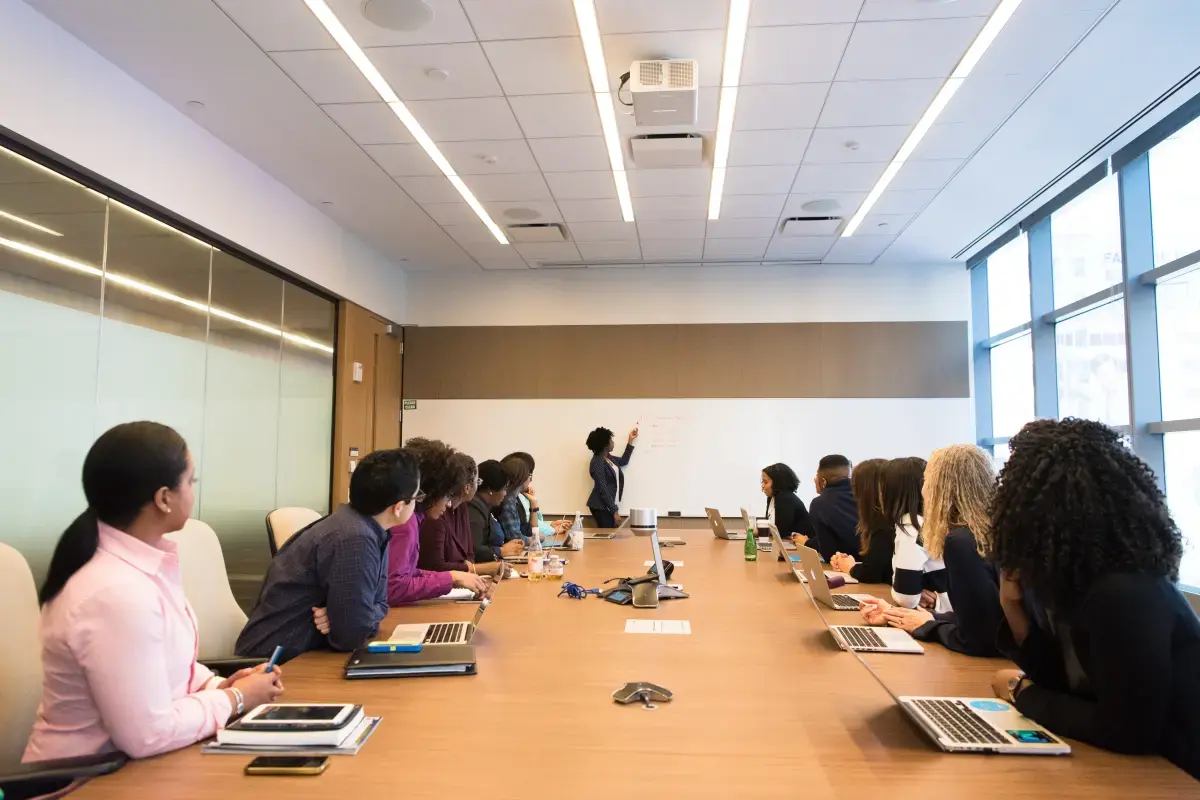
Agile Coach Job Description
What is a Agile Coach Professional?
An agile coach is a professional who helps organizations transition to and adopt agile principles and practices. The role of an agile coach is to help individuals, teams, and organizations learn and apply agile concepts and principles so that they can be more effective in their work. An agile coach works with individuals, teams, and organizations to help them learn and apply agile principles and practices. The coach helps the team to understand the agile values and principles, and then helps them to apply those concepts to their work.

What does a Agile Coach Expert do?
The coach also helps the team to create and maintain a shared understanding of the agile process and how it can be used to improve their work. The agile coach is a key member of the agile team, and works closely with the other members of the team to help them learn and apply agile concepts and practices. The coach is also responsible for helping the team to communicate effectively, and to work together collaboratively.

What are the Skills of a Agile Coach?
An agile coach is someone who helps an organization transition to agile practices and principles. They are responsible for helping teams adopt agile values, mindsets, and processes and providing them with the tools and resources they need to be successful. An agile coach should have a deep understanding of agile principles and practices, as well as experience coaching teams through agile transformations. They should also be able to effectively communicate with both technical and non-technical team members, and be able to tailor their coaching approach to the needs of the team.

What makes an Expert Agile Coach?
Some specific skills and experience that an agile coach might need include: - Agile principles and practices: The coach should have a deep understanding of agile values, mindsets, and processes. They should be able to effectively communicate these to teams and help them understand how they can be applied to their work. - Organizational change management: The coach should be familiar with principles of change management and how to effectively lead an organization through a transition. They should understand the challenges and obstacles that teams will face and be prepared to help them overcome them. - Team development: The coach should have experience working with teams and helping them to improve their performance. They should understand team dynamics and be able to help teams work together more effectively

What level of Experience & Qualifications are required to be a Agile Coach?
Industry Experience: An expert agile coach must have extensive experience in the software development field and in using agile methodologies such as Scrum, Kanban, Lean, etc. It is also beneficial to have worked on large-scale projects involving multiple stakeholders and technology platforms. 2. Training/Certification: Agile coaches should be certified by a reputable organization such as Scrum Alliance, Project Management Institute (PMI), or International Consortium for Agile (ICA). These certifications demonstrate an understanding of the principles, theories and practices associated with agile development methodology. The certifications also provide evidence that the individual has sufficient knowledge about how to effectively apply those methods within their own work environment. 3. Qualifications: Expertise in leading teams through change management processes is essential for a successful career as an agile coach; therefore its important to have qualifications related to this area of expertise—such as proficiency in one or more organizational change management frameworks like Prosci’s ADKAR framework or Kotter’s 8-Step Change Model—or professional training from organizations such as DSDM Consortium or Changefirst Consulting Incorporated . 4. Education: A minimum bachelor degree level qualification will be necessary —although many employers prefer candidates with higher degrees including Masters levels qualifications — plus any additional coursework from accredited universities related to applied sciences , business administration , project management , computer science , information systems engineering . In addition relevant postgraduate certificates may include Certified Software Quality Analyst (CSQA) Certificates and Project Management Professional (PMP®) Qualification Programmes . Finally its advisable for aspiring expert agile coaches undertake continuing education courses offered by specialised schools so they become familiar with new trends affecting industry practice ; these can range from online seminars on change leadership conducted at institutions like Stanford Graduate School of Business right through attendance at conferences hosted by organisations like PMI

What is the Salary of a Agile Coach?
A junior agile coach typically earns an annual salary between $80,000 and $100,000. This salary range may vary depending on experience level and the organization hiring the coach. With more experience and expertise, a mid-level agile coach can expect to earn between $100,000 to $135,000 per year. At the senior level of an Agile Coach role, salaries can range from as low as $120,000 up to as high as nearly half a million dollars annually. For some of these higher paying positions they usually require extensive experience in both business analysis and development along with knowledge or certifications in areas such as Scrum Master or Product Owner roles before applying for them.

What are the Working Conditions for a Agile Coach?
The general working conditions for an agile coach depend greatly on the specific employer, but there are some common elements that many employers look for. Most of the time, agile coaches work either as a consultant or in-house (full-time). When hired as consultants, companies may require their consultant to be available from 9 am till 5 pm during business days and sometimes also longer hours depending on need. While this is not always required when working remotely, it typically means that a person needs to be available and responsive throughout these hours so clients can get timely answers and guidance anytime they need help with following best practices etc. Agile coaches often travel extensively too; visiting different offices around the country or even overseas if necessary. In addition to traveling, theyll have plenty of opportunities to attend events around their geographical area where they can learn new skills while also networking with other professionals who share similar interests. They may also be expected to host training sessions at various conferences/events which could create interesting challenges each day due to unpredictable environment changes. In terms of job satisfaction & career potential: An Agile Coach will usually find great job satisfaction in helping teams become better organized and efficient by keeping up with project progress milestones through coaching & mentoring initiatives! And since Agile Coaches tend to stay involved in multiple projects all across industries - career growth options remain open without boundaries!

What are the roles and responsibilities of a Agile Coach?
Agile coaches help teams to transition to and adopt agile principles and practices.
Agile coaches help teams to self-organize and manage themselves effectively.
Agile coaches help teams to continuously deliver value and improve their performance.
Agile coaches help teams to retrospect and learn from their experiences.
Agile coaches help teams to identify and remove impediments to their success.
Agile coaches help teams to articulate and communicate their vision and goals.
Agile coaches help teams to prioritize and focus on the most important work.
Agile coaches help teams to stay aligned with the companys strategy.
Agile coaches help teams to make informed and effective decisions.
Agile coaches help teams to build and maintain healthy relationships.
Agile coaches help teams to resolve conflicts effectively.
Agile coaches help teams to stay motivated and engaged.
Agile coaches help teams to continuously learn and improve.
Agile coaches help teams to adopt and use agile tools and techniques effectively.
Agile coaches help teams to integrate agile principles into their daily work.
Agile coaches help managers to understand and support agile teams.
Agile coaches help organizations to transition to agile ways of working.
Agile coaches help organizations to adopt agile principles and practices.
Agile coaches help organizations to continuously deliver value and improve their performance.
Agile coaches help organizations to retrospect and learn from their experiences.

Where can I find Agile Coach jobs?
- Create a profile on gigexchange and promote your Agile Coach skills to advertise you are Open to New Work Opportunities
- Ensure your Resume (or CV), or online work profile is up to date and represents your skills and experience. Ensure your reputation reflects your ability & attitude.
- Apply for Agile Coach Jobs advertised on gigexchange.
- Practise Agile Coach interview techniques to ensure you represent your personality and ability succinctly and confidently.
- Accept the job offer if the salary meets your expectations and the employer mission and purpose reflects your core values.
Jobs
What are the best job boards for Agile Facilitator jobs?

How can I hire Agile Coach staff online for my business?
The best job board for recruiting Agile Coach experts is gigexchange.com. Advertise full-time, part-time or contract jobs to find, hire & recruit trusted, experienced and talented Agile Coach candidates near you.

Are Agile Coach roles in demand in 2026?
Agile Coach experts are still in high demand in 2026. If you are an experienced Agile Coach or looking to train and become one. The job market is looking strong for Agile Coach jobs near me.